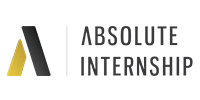It can be difficult to get your career started when even entry-level jobs require some form of hands-on experience. Landing an internship while you’re still in school is an excellent way to gain that hands-on experience and grow your professional network.
But just like every other aspect of the workplace, internships were significantly impacted by the COVID-19 pandemic. A Michigan State University study found that 25% of employers completely closed their summer internship programs in 2020, and an additional 33% of employers scaled back such programs in response to COVID-19. Thankfully, as the COVID-19 infection rate continues to fall and social distancing restrictions lift, more internship opportunities will be available in 2024.
Even so, the competition for the most desirable internships is steep and learning how to stand out when it’s your first time entering the job market is hard. In this guide, we’ll go over everything you need to know to get an internship, including factors you should consider when searching for an internship, how to craft the perfect resume, and tips for improving your interview performance.
What Is an Internship?
An internship is a short-term work/learning experience that’s offered by companies to students and young professionals.
Internships are generally part-time if they take place during a university semester and full-time if they take place during the summer. Compensation for internships varies — many are unpaid, while others pay quite well depending on the industry. And in some cases, an internship can lead to a guaranteed job after graduation since many companies use their internship programs for talent acquisition.
5 Main Benefits of an Internship
There are many reasons why you should consider interning at a company. In addition to the compensation offered by paid internships, the following five benefits stand out as the most important.
1. Gain industry experience
Studying up on the knowledge and skills that you’ll need to do a job is one thing — actually doing the job is quite another. With an internship, you’ll gain valuable experience and learn about all the aspects of your industry that they don’t cover in textbooks. Internships are available in a wide range of industries and provide many different opportunities. For example, if you’re a STEM student, you could use an internship to hone your research skills.
2. Test-drive a new career path
While you’re gaining that valuable experience, you may discover that the job isn’t as enjoyable as you thought it would be. Indeed, the work might be more difficult or monotonous than you were expecting. If you’re still a student, you can try internships in a variety of fields and industries before you fully commit to a major. That way, you can make sure that all the time and money you’ve dedicated to your degree is going toward a career that you will still find fulfilling years down the road.
3. Learn and grow your professional skills
No matter what field you’re interested in, an internship allows you to develop industry-specific skills that look great on your resume. The interviewing, hiring, and training process is expensive and time-consuming for employers — showing that you already possess the necessary work skills can help convince them that you’re worth the investment.
4. Build your network
Of course, advancing your career is as much about the people you know as it is about the skills you possess. An internship introduces you to other people who work in the industry. These connections can lead to new professional opportunities, and you may also develop relationships with higher-ups who can act as a reference when you interview for other jobs.
5. Land a job
Some companies treat internships as a hiring pipeline. Companies that have a history of this practice tend to offer the most competitive internships, as they provide you with a direct path to landing your first entry-level position after college.
What to Consider When Searching for Internships
In order to get the most value out of this experience, you’ll need to find the best internship for your career path and skill set. We recommend that you keep the following factors in mind during your search for internships.
Your goals
Well before you apply to any internships, you should consider exactly what you’re hoping to get out of this experience.
Some students will have different goals than others. If you’re a first-time internship seeker, you can use this experience just to see what it’s like to be part of a workplace. Conversely, students who have already completed multiple internships likely have more specific goals in mind, such as learning a particular skill or deciding between different career paths.
Your career path
Your career path is one of the most important things to consider when searching for internships. Most degrees can be leveraged into a number of different career paths. For example, a law degree can lead to a career as a public defender, corporate attorney, compliance officer, or criminal investigator. With internships, you can explore the paths that you’re most interested in to make sure that they’re really right for you.
Time commitment
Generally, you can expect internships to require a time commitment of 20 to 35 hours per week over a period of three to four months. Internships that take place during school semesters tend to require less of a commitment, while summer internships (especially paid summer internships) might come with a full-time 40-hour schedule. Will you be able to dedicate that amount of time to an internship and still keep up with your studies? You shouldn’t let these programs interfere with your obligations as a student.
Compensation
All internships fall into one of two categories: paid or unpaid. Given the time commitment involved, you will likely only have the option of applying to paid internships if you are relying on wage labor (rather than scholarships, grants, loans, parental support, etc.) at this time to pay your bills.
It should also be noted that the Department of Labor has standards that regulate both paid and unpaid internships. These regulations are based on the Fair Labor Standards Act (FLSA), which is the same New Deal-era piece of legislation that created the minimum wage and mandated overtime pay. For an unpaid internship to be legal, the employer must provide training, accommodate the intern’s academic schedule, and complement rather than displace the work of paid employees. Otherwise, the intern would be entitled to benefits such as the federal minimum wage and overtime pay under the FLSA.
College Credit
Yet another benefit to internships is that they often count for college credit. Check with school officials to see if this option is available to you — your program might allow you to earn credits for specific courses if the work is aligned with your major, or you may at least be able to use an internship to earn general elective/independent study credits.
You’ll probably need to produce a good deal of documentation to earn your credits. For example, at Cedar Crest College you need to have an Internship Contract filled out and signed by several faculty members before you can earn any credit. You’ll also need to complete written assignments over the course of the internship as well as an evaluation form at the end of the internship.
Local versus remote opportunities
It should be no surprise that the COVID-19 pandemic led to many in-person internships being converted into remote internships. And many of them will likely stay that way — there are a number of benefits to remote internships, including cost savings and more flexible schedules. But there are also drawbacks to remote internships, as you won’t get the same level of hands-on experience and it’s more difficult to build relationships for your professional network.
Tips for Finding an Internship
Once you know which type of internship you want, you’ll then need to identify employers that are offering similar opportunities. The tips listed below will help you find what you’re looking for.
1. Reach out to your network
You may not have been aware of it until now, but in a way you’ve been building your professional network your entire life. Do you know anyone, or do any of your family members or friends know anyone, who works within your area of study? These personal connections can lead you directly to an internship.
2. Visit your college’s career center
Your college may provide resources for student internships. Consult with a career center official to find out more about internship services such as partnerships with local businesses or financial support.
3. Contact local businesses
Another option is to contact businesses directly about internship opportunities. If there’s a local company that you’re especially interested in, you should check out their website or give them a call to see if they have an internship program.
4. Search online internship directories
Online internship directories are yet another valuable resource for finding an internship. There are quite a few out there, but the 10 we selected below have a proven track record of placing students in high-value internships stateside and abroad.
The Best Internship Directories for Students
Absolute Internship

This is an excellent option for students who would like to travel outside the country, as Absolute specializes in international internships. They offer opportunities to live and work abroad in cities such as London, Paris, Madrid, Beijing, and Tokyo. And for a more affordable way to gain experience, Absolute also offers remote internships that you can work on from home.
College Recruiter

College Recruiter’s online job board was launched back in 1996, and since then they have helped graduates at nearly all of the country’s 7,000+ post-secondary institutions find internships. Fortune 500 companies and federal government agencies often use College Recruiter, so you should be able to find some particularly competitive internships through this provider.
Global Experiences

Global Experiences is another provider that specializes in international internships. They offer opportunities in a variety of fields, including fashion, marketing, law, and finance. Also, Global Experience can help you with finding a permanent workplace — their alumni get hired three times faster than the national average.
Handshake

Instead of displaying available internships that you can apply to, Handshake has the employers come to you. First, you’ll need to make an account with your .edu email address and provide some details about the types of internships you’re interested in. Then, you’ll receive personalized internship recommendations and get recruited by employers who want to hire students like you.
Idealist

This is a good resource for students who are interested in the nonprofit and public policy fields. Idealist’s internship listings allows you to filter by location, compensation, language, organization type, and issue area.
Indeed

Indeed also doesn’t have a dedicated page for internships, so you’ll need to search for the term manually in their job portal. But this may be the largest job board on the internet, so there’s a good chance you’ll be able to find more internship opportunities here than anywhere else.
InternQueen

InternQueen’s internship listings page allows you to quickly review each option’s location, compensation, industry, and time commitment. In addition to these listings, InternQueen also provides helpful advice on topics such as “How To Incorporate Numbers On Your Resume” and “How To Answer: Where Do You See Yourself In 5 Years?”.

With hundreds of millions of active users, LinkedIn is one of the largest social media platforms in the world. And LinkedIn is mainly used for professional networking, so it should be no surprise that you can use this platform to find a great internship. While they don’t have a dedicated page for internships, you can use the search term “intern” in their job portal to discover available opportunities.
WayUp

WayUp allows you to browse internships by category (paid, volunteer, legal, accounting, etc.) or location (every major U.S. city has their own listings page). You can also create a free profile in just a few minutes, and then WayUp will direct you to the best available internships for your specific background.
How to Get an Internship
At this point, you know how to find the perfect internship for your career path. Once you’ve identified such an opportunity, you can follow the steps below to beat out the competition and secure it for yourself.
Perfect your resume
The resume is the first stage of the screening process. No matter how qualified you are for an internship, a poorly written or designed resume can get your application thrown out before you even had a chance. To create a high-quality resume, follow these tips:
- Lead with your strongest asset. If the internship is particularly competitive, the employer might not even bother reading all the way through your resume if they don’t initially think you’re a good fit. Be sure to include your most impressive asset (real-world experience, academic achievements, etc.) as soon as possible. This will help you catch the employer’s attention.
- Include any work experience. You may think that a past job not related to your field, such as a part-time cashier shift at a grocery store, isn’t worth including on your resume. But this experience is very much worth including, as it sets you apart from students who don’t have any experience at all in a workplace.
- Highlight skills, not just institutions. Employers are more interested in what you can actually do than where you’ve worked or studied. In each entry about an academic program or workplace, include the skills that you’ve learned and can apply to the internship.
- Keep it simple. While you do want to touch on all your skills and the jobs you’ve had in the past, resist the urge to pad the word count of your resume just to make it look more impressive. Employers aren’t expecting internship applicants to come in with a lot of experience, and they won’t appreciate their time being wasted on unnecessary walls of text. So, keep your sentences short, use bulleted lists whenever possible, and don’t go over one page total.
- Ask for help. You should run your resume by college faculty and other professionals in the field. They’ll know what employers in your industry are looking for, so they should be able to provide you with some helpful advice.
Jack Smith
(123) 456-7890
[email protected]
123 Address Rd, Anywhere, USA
Profile
Dedicated accounting student seeking an internship to support CPA accreditation objectives. Completed 32 credit hours of accounting work, including classes in managerial accounting, cost accounting, and audit with a 4.0 GPA. Experience in small business bookkeeping and reporting.
Education
Bachelor of Science in Accounting
The Ohio State University, August 2018 to May 2022 (anticipated)
Relevant coursework includes:
- Accounting and economic principles
- Business law
- Taxation
- Audit and assurance
- Cost and managerial accounting
Professional Experience
Bookkeeper, Small Accounting Corp, Columbus, OH
December 2019 to present
- Enter journal entries corresponding with both revenue and expenses
- Track accounts receivable and accounts payable to support the billing process for general company expenses
- Support monthly close, including closing out accounts, making reconciling entries and running financial statements
- Prepare invoices to send to clients and suppliers
- Work with treasury to manage cash flows and bank account balances
Administrative Intern, Tax Prep LLC, Columbus, OH
May 2019 – September 2019
- Answered phones, greeted clients at the front door and prepared for client meetings
- Replied to new client emails with information about the firm, including services and pricing schedules
- Organized client information, including receiving, scanning and cataloging tax records
- Supported the tax preparation process, including data entry into tax prep software and organizing client communication regarding return submission and IRS examination
- Offered general administrative support to CPAs, including scanning, faxing, filing and initiating client contact
Key Skills
- Attention to detail
- Experience with accounting software, including QuickBooks and ProSeries
- Expert Microsoft Excel skills
- Foundation in the principles of accounting
- Knowledge of financial statements
For more information on this subject, check out our in-depth internship resume writing guide with examples.
Write a quality cover letter
If an internship comes down to you and another applicant with a similar work and educational background, the outcome very well may be decided by who has the most impressive cover letter. Here’s how you can make your cover letter stand out:
- Write a unique cover letter for each internship opportunity. If you’re applying to multiple internships, you may be tempted to save time by writing one generic cover letter for all your applications. Avoid doing this, as it creates the impression that you don’t care about the opportunity as much as the applicants who took the time to personalize their cover letter.
- Format the document as a letter. Don’t forget that this is a cover letter — start it off with a greeting (e.g. “Dear Hiring Manager”) and close it out with a signature (e.g. “Best Regards, Your Name”). Also, your contact information should be at the very top of the page.
- Reference the listing. No matter what industry you work in, every employer values attention to detail. If the internship listing mentions specific skills, you should refer to those exact skills in your cover letter. In addition to showing that you’re a good fit for the position, the fact that you thoroughly read their listing implies that you will be able to thoroughly complete other tasks as well.
- Proofread and revise: Spelling mistakes and grammatical errors are extremely unprofessional. Read over your cover letter once or twice before you send it in — in addition to correcting obvious mistakes, look for any places where you can make the language more clear and concise.
- End with a reference to your future interview. In the last paragraph of your cover letter, tell the employer that you look forward to meeting with them to discuss the internship further. This projects confidence and makes it abundantly clear that you are interested in this opportunity.
Ayelah Bofumbo
Digital Media Student | [email protected] | (407) 123-4567 | 458 Third St., Jacksonville, FL 32218
January 1, 2024
Jacob Caprietta
Internship Coordinator
Candlelite Publishing
(407) 987-0123
[email protected]
Dear Mr. Caprietta,
When I heard about your company’s ground-breaking efforts to expand diversity in the children’s publishing world, I felt deeply that Candlelite Publishing is where I can acquire hands-on experience and connections for my future career in digital publishing and marketing. My education, interpersonal skills, and commitment to uplifting children through media make me an excellent fit for your internship position.
I am on track to earn a Bachelor of Applied Science in digital media at Florida State College at Jacksonville in Spring 2022. In my pursuit thus far, I have maintained a 3.86 GPA and am gaining extensive knowledge and skills with courses including:
- Digital Imaging Fundamentals
- Computer Application: Vector Graphics
- Fundamentals of Interactive Design
- Computer Animation I
- Digital Video Fundamentals
I am eager to discuss with you how my academic record reflects my motivation and passion for creativity. Please contact me to set up an interview at your earliest convenience.
Sincerely,
Ayelah Bofumbo
P.S. I’d love to show you my self-published e-book that I completed in 2019.
And for more information on this subject, check out our in-depth internship cover letter writing guide with examples.
Create a digital portfolio (as needed)
For some internships, especially programs that have an artistic element such as writing, graphic design, or photography, you’ll need to submit a digital portfolio of your best work before you can get an interview. In that case, the following tips will help you showcase your skills and build the best possible portfolio:
- Start with your best work. As with your resume, you’ll want to start off your digital portfolio on the most impressive note possible.
- Don’t include any subpar (or even average) work. Quality is much more important than quantity here. Even if you only have a handful of pieces that you consider above-average, it’s better to leave them wanting more than to show anything that makes you look like an average talent.
- Show your process. If you feel like your portfolio is lacking in finished pieces, you can fill it out with content that depicts your process (sketches, wireframes, etc.). Such content can prove that you have a firm understanding of the fundamentals.
- Include a bio. Who is the artist behind the work? Adding some personal details will help your portfolio stand out from the other applicants.
- Include awards and recognition. Has your work ever won any competitions or been officially recognized in any other way? If so, be sure to include this information in your portfolio.
Prep for your interviews
Once you’ve been invited to an interview, you’re only one step away from finally landing the internship. With these tips, you should have no problem getting across the finish line:
- Research the company. Before you go in for your interview, you should thoroughly review the employer’s website and read through any other relevant materials you can find. Learn about their history, leadership, products and services, plans for the future, etc. This will show that you care more about this opportunity than other applicants.
- Anticipate common interview questions. Why do you want to intern at this company? What are your biggest strengths and weaknesses? What’s your plan for after college? Thinking about how you will respond to these questions ahead of time will allow you to appear more intelligent and poised when you need to actually answer them on the spot. You should also think up some questions of your own, as this will show that the internship has been on your mind and you’re taking it seriously.
- Get a good night’s sleep. Don’t get so caught up in interview prep that you miss out on any sleep before the interview. Getting your full seven to nine hours the night before will reduce stress, improve your memory, and help you be at your best.
- Arrive on time. Nothing looks more unprofessional than showing up late to your very first meeting with a potential employer. If you’ve never traveled to the site of the interview before, remember to account for traffic and give yourself a generous time buffer when planning your commute.
- Relax. While this internship is important to you, don’t let the pressure get to your head and affect your performance in the interview room. You certainly don’t want to appear anxious or flustered. Remember, after reading this guide and doing your research, you can be confident that you know exactly how to impress the employer and get the internship.
Frequently Asked Questions with Carolyn Kleiman
Why are internships important?-
Internships provide valuable experience for students by introducing them to the professional workplace. They serve to build job function-related skills, as well as soft skills (communication, teamwork, leadership, problem-solving, etc.) Internships can provide students with "real world" experience and serve as a window into the industry they are considering. Moreover, employers continue to value internship experience over other work experiences that students might have on their resumes.
Does GPA matter for landing an internship?-
In some industries, there is a fair amount of weight placed on GPA, that number hovering around 3.0-3.2, others may even seek 3.5. Traditionally, the financial, accounting, and consulting industries are the most likely to use GPA as part of their screening criteria. GPA is not the only thing, the courses and rigor of the program, the grades in classes related to the field are also important. A strong GPA is always going to be helpful, but it is not everything.
Can I get an internship with no work experience?-
An internship can often be one's first work experience. Internships are meant to be building blocks and entry points. It is not uncommon for students to land an internship with no prior experience. Which likely begs the question, then what do I put on my resume? How do I boost my chances of getting an internship, particularly if I don't have experience? First, any work experience is good experience. Having to maintain a schedule that may change often such as in food service or retail, while juggling other responsibilities (school at a minimum), shows time management skills.
Any work experience teaches responsibility, accountability, communication abilities, and more. If you have never held a job before, do not despair, there are other things to include on a resume. Coursework and projects are some of my favorite categories for students. It is an opportunity to show a potential employer where some of your interests and knowledge lies, while also providing a vehicle to showcase how you transferred something theoretical into practical use. Another option to include is school projects, which build a bridge between the "academic you" and the "future you". Organizations, community service, research, athletics, and even hobbies can also be used to build a resume.
How do I know if the opportunity is a good internship?-
One way to spot a good internship is to take the time to research the company offering the opportunity. Make sure they are a legitimate employer, check out the company culture, and employee reviews if you can find them. Read the description thoroughly, and if you are selected to interview, use that opportunity to interview them too! Ask questions about the work itself, their expectations, their training, if they have mentors, and how they evaluate interns, for starters. If they don't have answers or give answers that don't fit what you are looking for, then it may not be a good internship (for you).
How do I boost my chances of getting an internship?-
You can boost your chances of getting an internship by boosting your resume! A solid resume can include any work experience you've had, your campus or community service, your affiliations (on- or off-campus), athletics, volunteer work, research, and academic projects. For example, if you are a student-athlete, highlight this on your resume. By that I mean don't just list at the bottom that you play on the team, list it like a job and tell me the hours per week you practice, train, review films, the extent of your travel, how you help your teammates, and maybe your personal stats as part of that team.
Besides boosting your resume, the time and effort you put into the search matters. If you passively scroll through a big job board once a week and click an "easy apply" button a handful of times, don't expect great results. You need to be active and assertive. Research companies you are interested in, talk with friends, family, and faculty. Make sure people know your interests and that you are looking for opportunities.
Do internships really matter for getting jobs post-college?-
Data shows more than 50% of graduating students secured their position based on an internship or similar pre-professional experiential learning experience (practicum, fieldwork, etc.) Data also shows that at least 70% of companies offering internships extend full-time offers to most of their intern cohort. So, the bottom line is yes, internships are a powerful tool to land that first post-grad job.
How can I leverage my internship for my future?-
The best way to leverage your internship for a full-time job in your future is to make the most of that experience while you are gaining it. By that I don't just mean do your work and do it well. You should take initiative, ask questions, ask to join meetings, ask for feedback, attend trainings, and talk to employees about their projects and careers. Treat the internship as if it were one long interview.
Additionally, keep track of everything you are learning and doing so that you can update your resume. Even if you do not receive an offer from your internship, that does not mean you can't ask your supervisor to be a reference in the future and help you connect to other professionals. Leveraging the connections you make from the internship can be very powerful and beneficial, and you should be cultivating your network while there as much as your job-related skills.
Craft your perfect resume in minutes
Get 2x more interviews with Resume Builder. Access Pro Plan features for a limited time!



